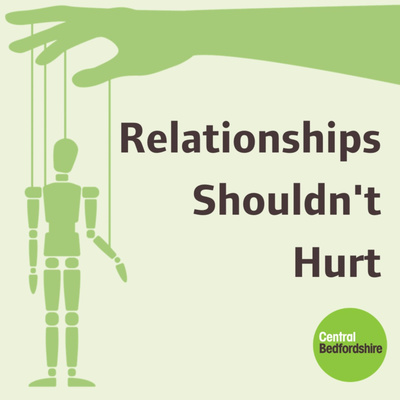Podcast: Domestic Abuse Protection Orders
Since last year, Central Bedfordshire Council has released a number of podcasts around the theme of domestic abuse. The aim of these podcasts is to increase awareness of domestic abuse – and help those experiencing it – by shining a spotlight on the different services that support victims and challenge the behaviours of those who perpetrate it. The council also is reaching professionals working on the frontline of domestic abuse through discussions about the impact of abuse, empowering victims’ voices, and providing knowledge for continued professional development.
So far, the podcast series has delved into topics such as ‘Coercive Control Within A Domestic Abuse Relationship’ and ‘Domestic Abuse: Stalking and Harassment’. Most recently, Shahid Shoeb from the Domestic Abuse Alliance contributed to their latest recording; ‘Domestic Abuse Protection Orders’.
In this episode Shahid explained what protection is available to victims of domestic abuse, such as an occupation order or prohibited steps order. He also stipulated the process to apply for a protective order and the costs that may be involved as well as the length of time an order will last. Shahid also provided practical advice on when a protection order is the correct course of action, and what a victim can do if they feel the order has been breached.
You can listen to the podcast here, and catch up on previous episodes in the series. If you, or someone you know is experiencing domestic abuse and needs legal support, call the Domestic Abuse Alliance helpline on 0800 101 7110 or visit our website.

- Published in News
Domestic Abuse Bill enshrined in law
29 April 2021 marked an historic moment when the long-awaited Domestic Abuse Bill finally received Royal Assent and became enshrined in law. The new Act will provide further protections to those experiencing domestic abuse and strengthen measures to tackle perpetrators.
For the first time in law, domestic abuse has a legal definition and parameters including different types of abuse not just restricted to physical violence. The bill now includes coercive control, emotional and economic abuse.
The Act includes increased police powers to provide victims with immediate protection from their abusers, and better support for victims providing evidence in court, such as the option to appear via video link.
In consultation with the Domestic Abuse Commissioner, campaigners and charities, the government has added new measures to the bill to further strengthen the law, including creating a new offence of non- fatal strangulation, extending an offence to cover the threat to disclose intimate images, and clarifying the law to further clamp down on claims of “rough sex gone wrong” in cases involving death or serious injury.
The law will now also explicitly recognise children as victims if they see, hear or experience the effects of abuse.
Home Secretary Priti Patel said, “The Domestic Abuse Act is long overdue. This landmark act will transform the support we offer across society. This includes the support Government provides to victims to ensure they have the protection they rightly need, so that perpetrators of these abhorrent crimes are brought to justice.”
Domestic Abuse Commissioner Nicole Jacobs has published this video welcoming new measures within the Act but cautioned that “legislation won’t change things overnight”.
Razi Hassan, Director of Partnerships and Communications for the Domestic Abuse Alliance said: “We will continue to work with our partners and ambassadors to support further changes to the law that improve outcomes for victims of domestic abuse. Specifically, we would like to see legal aid made available to victims in all domestic abuse cases, removing any barriers to vital legal support and protection.”
- Published in News






